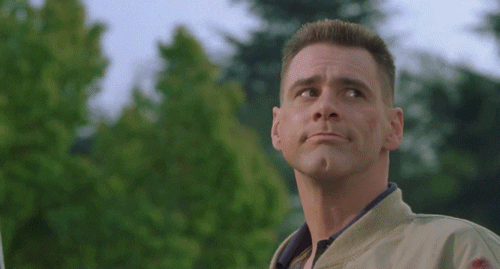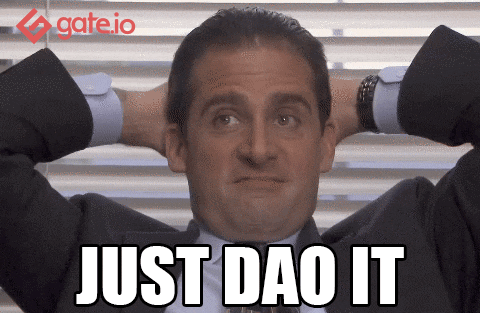Web3 & Health - Could it be? Part 2
A few ideas, opportunities and cool things happening out there
Ah, so looks like we lost 3 people yesterday. Sad. Fair. So long friends.
For the rest of you wonderful people - here is Part 2.
In case you missed Part 1 yesterday, or you want to review the basics…
Today:
Some Ideas & Opportunities in Health
NFTs for IP
Decentralised Health Journals
Gamification
Incentivisation & Move-to-Earn
Health Data (duh)
DAOs - A new world of funding research & startups
So why is this necessary?
And, if you're new here and want to join our healthtech loving crew ft. delicious drops straight to your inbox - smash that subscribe button! 😊
Some Ideas & Opportunities in Health
*We are being optimistic - ok?💡 NFTs, fractionalization and Tokens for IP
When I first heard about the concept of using NFTs and tokens for IP and research ownership - it was the lightbulb moment for me.
I didn’t really get web3, or the real-world practicality, until this concept.
Current IP practices are complicated, expensive and often see many lose much/all of their work and ownership. Whilst researchers often don’t reap many rewards from publications, other than kudos and status.
NFTs could change that.
NFTs provide “ownership” that can’t be replaced, changed, or really disputed without direct authorisation. And within them, there can be different “contracts”, terms or entitlements - enabling access passes, rights, or even payments. Just like a membership, or owning any IP or original collectible.
Imagine if everyone involved in a research project got tokens and part ownership of the research, based on contribution? As the tokens value (theoretically) increase with the success of the project - it aligns incentives for the research or company to succeed.
And through having projects, or research as NFTs - it could even allow for creators or holders to receive royalties - when people access it. Or want to licence the IP or research.
Similar to what is now happening for artists in the music industry.
Last week, VitaDAO, a DAO for funding longevity published an example legal structure of how something like this could work.
📚 Decentralised Scientific Journals
Right now - Science is pretty darn inaccessible for most.
Fees to access single articles or publications are insane. While new “Open Access” journals make researchers pay hefty fees of up to $11k just to publish. Yet, researchers earn nothing, peer reviewers aren’t paid, and journals come away with hefty profits.
Continuing on the idea for NFTs - for papers or publications, this could allow researchers to reap rewards when people access, site or use the research. Or alternative business models - such as journal DAOs to form, removing the intermediaries and crazy costs. And providing the benefits back to contributors in the group. With concepts out there like, Ants Review: a token-based incentivisation system for peer reviewers, on how this can work.
Nikhil from Out-of-pocket health has a great piece on this.
🎮 Gamification - On Chain
Buzzword alert. Games are already infiltrating health in everything from medical compliance to education, rehab & socialising.
With the rise of esports, the “Metaverse”, and games on the blockchain - it’s only going to happen more and presents an interesting opportunity.
Neopets, Sims, Fortnite - all iconic. Now imagine if these had health incentives, literacy, and/or challenges embedded? Wouldn’t that make health more fun? And more likely for people to actually engage? Even from an early age.
Axie Infinity is a blockchain-based, play-to-earn game that is played by 2.8 million people every day. And represents a growing trend. Apple Health, Peloton & even Pokemon GO all combined health with games. So it could be feasible for web3 to be the next evolution of these for health.
🤑 Incentivisation at its finest…
Health rewards get an upgrade
The hardest part of treating patients or motivating people with health is often not the diagnosis or figuring out what they should be doing - but getting them to do it.
And with games, communities and behavioural hacks - incentivising adherence and change is possible for many activities, health markers & conditions.
Key Target Areas:
Fitness - Motivation & Accountability
Preventative Health
Treatment Compliance
“Communities” - Rehab, Sports, Support Groups
Many traditional market players have tried to make the business model for this work, but with current structures and endless intermediaries - it’s been hard. But perhaps with web3 and the removal of intermediaries, it could? And create more effective health “Marketplaces”. It could be the future of affiliate schemes, rewards and services.
💰 Pay-To-Move
Rewards and money are powerful motivators. So it makes sense why people love this idea.
Sweatcoin, a health app that rewards steps with “sweatcoins” is adding a rewards option in crypto. Genopets, the first ‘Move-to-Earn’ NFT Game raised US$8.3M in Oct 2021 to bridge the gap between crypto and non-crypto gamers and try to get the “mainstream” into the world of crypto.
In late Jan, STEPN, an NFT move-to-earn startup from South Australia with >36k community members secured $5m via SAFT to fuel its growth. Whilst PUML is using NFTs and crypto as rewards for corporate health challenges.
Anyone who enters via this route could also, arguably, move further into personal health data - and use it as an alternative route to building full personal health records.
💜 Communities and Brands
Imagine if Strava, the social network for runners leveraging community, leaderboards and rewards was built on web3? Or behavioural change and compliance programs like Perx could combine and leverage their multiple components in web3 communities?
Or, specific support communities could come together. Empowering and supporting patients with collective knowledge, centralised medical records, verified supports and incentives schemes. Think Arli, or Virta but on-chain.
Wild. It’s not there yet, but could happen. And we’re seeing early signs.
Brands are on board too - Addidas rolled out NFTs, Nike’s making a metaverse, NIKELAND, with Roblox, and lululemon is likely to do something with Mirror. Not to mention - the other metaverse plays (that’s for another time).
💽 The Classic - Health Data
Blockchain has always fueled excitement about the potential to have everything “undisputable” and in one place”.
Given the chaotic, scattered nature of health records and systems - aggregated health data, appears to be, a great potential use case.
Potential - Sure
Practically - Ehhh, oh so hard
Personal Health Data
Right now, you can store cryptocurrencies, tokens and NFTs in your “personal wallet”. Imagine if you could hold all your health data in one place - owned by you?
The current state of health data means most people don’t own, control, or even have access to their own personal health data. With health information exchange largely limited to corporations.
But despite the arguments of who owns the data - given the need for more accurate data to improve outcomes & research, it seems logical to give patients the ability to own and hold their own data.
2 weeks ago a paper was published in the Science Journal on How NFTs could transform health information exchange. There are even ideas that eventually every human’s genomic sequence could be captured and stored at birth - allowing for next-level healthcare personalisation.
🚩 The Obvious Red Flag: Privacy
Things stored on the blockchain are available for all to see. And it’s unlikely anyone will want that to happen - but there will likely be some workaround.
*Side Note:
With people having their own data on chain this could then allow people to “sell” their data to studies or research, or get “royalties”. Creating aligned incentives, and providing bigger, more complete data sets than ever before.
Now that could really change research
The Decentralised Electronic Medical Record (EMR) Dream
EMRs are a classic hypothetical. But it’s darn tricky. Especially given the endless data variations between every darn clinic.
Many companies have tried - and failed. Like Patientory or Medical chain. Unless you have mass adoption, and serious incentivisation for people to change - it just won’t work. Not to mention, the issue of endless different data formats and standards.
Interoperability desperately needs to be sorted out and standardised first.
But - I’m sure many will, and are, continuing to try. This sure could get interesting…
💸 New Ways of Funding, Forming & Owning Research & Companies
DAOs & NFTs for Funding & IP
Anyone who’s been in research knows it’s a tad old school. With crazy hoops to jump through, time-sucking grant applications, serious silos, and often crazy IP practices. Meaning many valuable projects and researchers, never get funding or see the light of day.
And, getting funding as a Startup is hard. There’s still not enough money in health and life sciences. Not to mention, people calling the shots who know what’s what from a clinical level. Or even, alternative views.
Enter DAOs…
DAOs present a new opportunity to leverage communities, decentralisation and collaboration to change the way we fund and support ventures or research.
What’s a DAO again?

The idea is that by creating and utilising better-connected ecosystems and community structures it’s possible to change the way IP, funding and collaboration work. Including allowing access and pathways for many who previously wouldn’t, or couldn’t have been involved.
It took me so darn long to publish this, of course, a16z beat me to the punch last week - releasing an article on “Decentralised Science” or DeSci…
🧬 DeSci
As a16z puts it…
“DeSci lies at the intersection of two broader trends:
1) efforts within the scientific community to change how research is funded and knowledge is shared, and
2) efforts within the crypto-focused movement to shift ownership and value away from industry intermediaries.”
DeSci aims to have communities be the new “shareholders” of scientific knowledge, and dictate what gets funded via organised votes.
VitaDAO is one of the most prominent projects in the space, bringing global longevity leaders and enthusiasts together to fund and support select research and individuals. With the goal to improve science and grow biotech companies. Members can join by purchasing “VITA” tokens or earning them through contributions of work or IP.
Imagine the potential outcomes when you enable mass visualisation, pools of experts and provide international support structures?
Other Cool Things:
Molecule - a marketplace for funding, collaborating and transacting early-stage biopharma research. https://twitter.com/Molecule_dao
GenomesDAO - a biotech DAO focused on the safe, private, and auditable monetization of genomic data using DeFi
PsyDAO - a decentralised organisation with the goal of funding research at the intersection of psychedelics and mental health
Transhuman coin - a coin seeking to merge AI with Biotech in the Metaverse with the aim of solving diseases and ageing, which allocates funds to research and developments
For more on the landscape - check out this DeSci Wiki
Currently, it’s largely in scattered clusters and very early days. With struggles to get buy-in from traditional academic institutions - but it sure is interesting.
🚀 A New Era of VC
Web3 is changing the way funding works.
Previously, it’s been up to big VCs and institutions to pick who gets funded. With limited options in health and biosciences. Not to mention, the hardest part is often accessing the right networks, supports, and expertise needed to successfully raise a startup.
As they say, it takes a village…
But DAOs are changing that… Enter “Decentralised Venture”
DAOs can allow anyone, from anywhere to get together, collaborate, and (theoretically) invest.
Last year thousands of people came together over the internet to raise US$43 million in a week to try to buy a copy of the US Constitution.
Just think what could happen if that was directed towards health & science?
Imagine if groups of individuals & experts across all facets of health, science and business came together to pool their knowledge & resources. Then vote on who gets funding. Tokens can be provided in exchange for contribution or investment, aligning incentives. Like ESOP for startups, or shares for investing.
Its the ultimate “Value add” VC
Kind of like VC, Venture Studios and Crowdfunding all had a baby with slack at the centre
Given the current unregulated nature too - theoretically it could allow anyone to participate. Instead of just the “sophisticated” (ie - rich).
In the US - Syndicate, is trialling scalable web3 infrastructure for groups like these. And making it 1200x cheaper to set up and run investing clubs as DAOs. But, it’s yet to overcome the “sophisticated” investor hurdle.
Community & Value Add as a Moat
The reality is many Investors, especially the newer breeds, are already applying some of these principles. Money, though valuable, is no longer the scarcest asset. To really win this game - you need to bring more to the table than just cash.
Strong communities with a vested interest, experience and expertise will, and are forming a new breed of investors - challenging syndicates and traditional VCs.
DAOs may even replace crowdfunding - as communities, fans and believers rally to financially (and morally) support their favourite companies, founders and people. Letting “everyday” people also get in the game.
Yes, there will need to be some form of regulation and change.
But still, it will happen.
Startup investing is the new Wall Street after all.
And personally - I think this is exactly what is needed to help more startups, and researchers succeed in health. Especially in Aus.
❓So, Why Is This Necessary?
There are perfectly good use cases and solutions that aren’t on web3
Yes, you’re not wrong - but why is anything necessary?
Most truly disruptive innovations take the form of toys or games at the start. Seeming somewhat “stupid”- before becoming mainstream and translating to more “practical” uses.
The telegram was boohooed when it was first invented. As was the bicycle, and the automobile - with people saying it was “unnatural” for humans to go that fast and countless new dangers. But then clear utility emerged, safety improved and benefits were deemed more valuable than the drawbacks.
Which will likely happen with Web3.
But for health, the possibilities to improve the systems for funding, data, communities and ownership - are giving me hope.
💡 TL;DR: Lots of issues
But lots of potential too… if you choose to be optimistic
Who knows. It’s still the early days of the internet. So, there’s going to be a lot of change. And really, that is the only thing we can actually be certain of.
What do you think of Web3 in health & bio? Have you seen anything interesting in this space? I’d really love to hear from you so drop a comment below or hit reply and let me know!
Caio for now
👋 Emily








Great article Emily. https://hashedhealth.com/ has been working on this for a few years and is worth following. I saw something interesting that might offer a way to square the circle of your "Red Flag - Privacy" - encrypted data that can still be analysed. Would be interested to know if there's a there there here... https://www.omniindex.io/
awesome article Emily, keen to collab with you one day ✌️